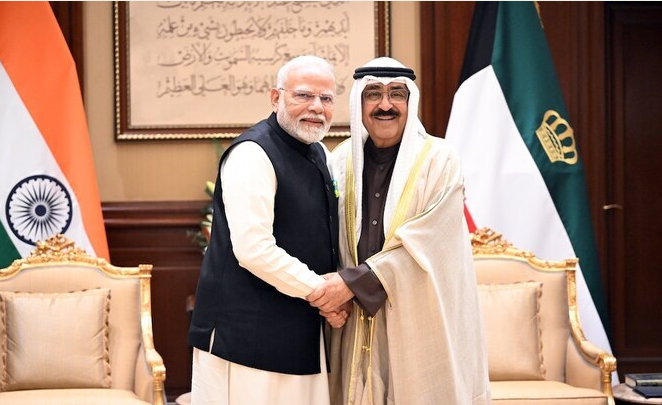Introduction
Australia a landmark development, Australia has approved the extradition of a former U.S. Marine, Daniel Duggan, to the United States on charges related to the alleged training of Chinese military pilots. This case has drawn significant international attention, as it touches upon national security concerns, the ethical responsibilities of former military personnel, and the geopolitical tensions between the U.S., China, and their allies. Duggan, a naturalized Australian citizen, has denied the allegations, stating they are politically motivated.
1. Who Is Daniel Duggan?
Background and Military Career
- Duggan served as a U.S. Marine Corps pilot before becoming a civilian flight instructor. His military career included extensive training in advanced combat and aviation techniques.
Life After Military Service
- After leaving the military, Duggan transitioned to private aviation. He has also worked internationally, including stints in China, where prosecutors allege he provided unauthorized training to Chinese pilots.
 For the more information click on this link
For the more information click on this link
2. The Allegations Against Duggan
Nature of the Alleged Activities
- U.S. prosecutors claim that Duggan provided “personal development training” to Chinese military pilots.
- The training reportedly included information about carrier-based aviation tactics, which could have strategic implications for China’s growing naval ambitions.
Payments and Logistics
- It is alleged that Duggan received approximately AUD 88,000 (USD 61,000) and international travel benefits from an unnamed conspirator as compensation for these activities.
Violation of U.S. Law
- The U.S. argues that Duggan’s actions violated laws governing arms export controls, which restrict the transfer of sensitive military knowledge to foreign entities.
3. Legal Process in Australia
Arrest and Detention
- Duggan was arrested in October 2022 in New South Wales by Australian Federal Police, acting on a U.S. extradition request.
Extradition Approval
- In December 2024, the Australian Attorney-General formally approved Duggan’s extradition, citing the legality of the U.S. request under existing bilateral treaties.
Legal Appeals by Duggan
- Duggan has vehemently denied the allegations, asserting his innocence and framing the case as politically charged. His legal team is considering all available avenues to appeal the extradition decision.
4. Geopolitical Context
U.S.-China Rivalry
- The case unfolds against the backdrop of heightened tensions between the U.S. and China.
- U.S. officials have repeatedly expressed concerns about China’s rapid military advancements, especially in naval and aerial domains.
Australia’s Strategic Role
- As a key U.S. ally in the Indo-Pacific, Australia’s decision to extradite Duggan aligns with its commitment to countering China’s regional influence.
5. Implications of Duggan’s Extradition
For National Security
- Duggan’s case raises serious questions about how sensitive military knowledge is safeguarded after personnel retire from active duty.
For Veterans and Private Employment
- It underscores the need for clear guidelines governing the post-service activities of former military personnel, especially those with specialized skills.
For International Relations
- The case could further strain U.S.-China relations, as Beijing may perceive the extradition as part of broader Western efforts to impede its military growth.
6. Ethical Dimensions
Duties of Former Military Personnel
- Serving military members are bound by stringent ethical and legal standards; however, post-retirement activities are often governed by ambiguous guidelines.
- Duggan’s case highlights the need for international agreements to ensure that retired personnel do not inadvertently or deliberately aid potential adversaries.
Transparency and Accountability
- The accusations raise concerns about the responsibility of former service members to maintain transparency in their professional engagements.
7. Public and Media Reactions
In Australia
- Public opinion is divided, with some viewing the extradition as necessary to uphold international law, while others argue it undermines Duggan’s rights as an Australian citizen.
In the U.S.
- National security experts have largely supported the extradition, framing Duggan’s alleged activities as a serious breach of ethical norms and U.S. laws.
Global Media
- Chinese state media have characterized the case as an example of Western overreach, accusing the U.S. of politically motivated actions.
8. Broader Implications for Australia-U.S. Cooperation
Legal Precedents
- The extradition highlights Australia’s commitment to its defense and legal alliances with the U.S.
- It sets a precedent for how cases involving sensitive military information are handled under international treaties.
Reinforcing Strategic Partnerships
- The case demonstrates the importance of intelligence sharing and legal collaboration in addressing emerging security challenges.
9. Duggan’s Defense and Legal Strategies
Claims of Political Motivation
- Duggan and his legal team argue that the case is driven by geopolitics rather than genuine legal concerns.
- They assert that his activities were within the bounds of legal civilian employment.
 For the more information click on this link
For the more information click on this link
Appeal Prospects
- Duggan is exploring legal options to contest the extradition, including appeals in Australian courts and potentially bringing the case to international attention.
10. Future Challenges in Regulating Military Expertise
Balancing Civilian Careers and National Security
- As military technology becomes more advanced, regulating how specialized knowledge is shared post-retirement becomes crucial.
Need for International Collaboration
- Establishing global norms to monitor and regulate military expertise transfer is essential to prevent similar incidents in the future.
Conclusion
The case of Daniel Duggan serves as a cautionary tale about the complexities surrounding the global dissemination of military expertise. While his extradition underscores the seriousness with which the U.S. and its allies approach national security breaches, it also raises important questions about the ethical and legal boundaries for retired military personnel. As Duggan prepares to fight his case, the world will be watching to see how this pivotal legal battle unfolds. For now, the case reinforces the urgent need for clear international guidelines in safeguarding sensitive military knowledge. ALSO READ:-Only 12 Trucks Delivered Food, Water in Northern Gaza Since October: Oxfam Highlights Crisis 2024






auto glass replacement 29304
windshield chip repair 29319
29304 windshield repair near me
auto glass mobile service 29304
29307 auto glass quote
One of your best pieces yet — absolutely loved it.
Amazing job — I’ll be sharing this with others.
Your passion brings this content to life — excellent work!
Thank you for expressing this so clearly.